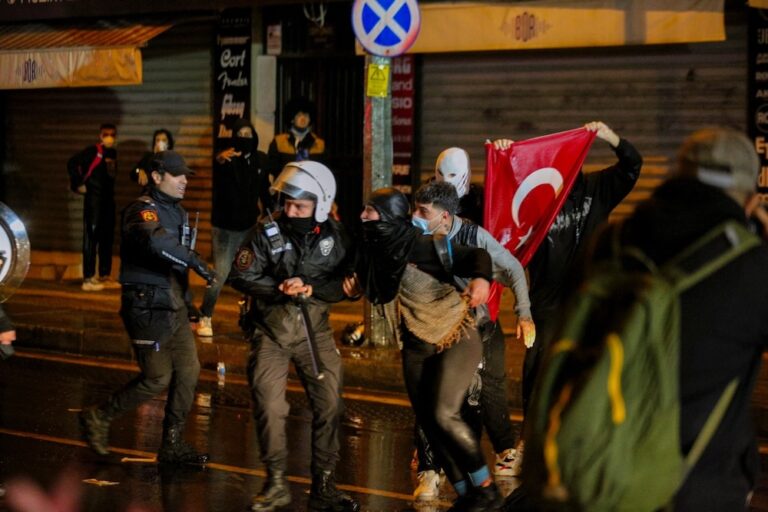(WiPC/IFEX) – Orhan Pamuk, one of Turkey’s most well known and internationally acclaimed authors, has in recent days suffered threats from extremists calling for his books to be seized from public libraries and, in some cases, burned. Pamuk is under attack for comments he made to a Swiss newspaper in March 2005, which have been […]
(WiPC/IFEX) – Orhan Pamuk, one of Turkey’s most well known and internationally acclaimed authors, has in recent days suffered threats from extremists calling for his books to be seized from public libraries and, in some cases, burned. Pamuk is under attack for comments he made to a Swiss newspaper in March 2005, which have been interpreted by his detractors as anti-Turkish. Debate in the Turkish media has been fierce, with articles both supporting Pamuk and condemning him.
International PEN is dismayed that these blatant attacks against one of Turkey’s most famous writers have not been condemned by the authorities. Their silence is puzzling given that the government has taken measures to redress through legislative change its past poor record on human rights. Recently, the Turkish government ordered the postponement of the enactment of a new Penal Code, which was set to come into force on 1 April, until 1 June. The move is to allow for consideration of criticism by non-governmental groups, including PEN, that the law still contains significant flaws, notably on the protection of freedom of expression (see IFEX alerts of 1 April and 23 March 2005, 21 December and 6 October 2004).
Yet in the same week the Turkish press reported that Pamuk’s books had been burned during a “Respect the Flag” rally in Bilecik, some 150 km south of Istanbul, in protest over the burning a few days earlier of the Turkish flag during Kurdish New Year festivities. Soon after this incident, a local administrator in Isparta, south-central Turkey, ordered the seizure of Pamuk’s works from all public libraries. It was subsequently discovered that no library in Isparta has Pamuk’s work on its shelves. The fact that the seizure order was quickly cancelled by the Regional Director of Isparta, who told the press on 30 March that the directive had been “mistaken”, does little to assuage concerns that a climate of hostility is emerging against writers who comment on “taboo” topics. It would appear that those who attack writers and their works in Turkey can do so with impunity.
On 2 April, a number of Isparta-based trade unions and associations held a demonstration against Pamuk, during which his photograph was torn to pieces and thrown into litter boxes. The demonstrators called on the prosecuting authorities to bring Pamuk to trial, threatening to hold further rallies in the coming days. There appears to be little likelihood of an early easing of the climate of hostility and threats against Pamuk.
Inscribed in a memorial to those who died at the Dachau concentration camp during World War Two are the words of the German poet Heinrich Heine, written over a century earlier: “Wherever they burn books they will also, in the end, burn human beings.” With this warning in mind, PEN notes that it is essential that the Turkish authorities at the highest level publicly condemn the attacks against Pamuk’s works, making it clear that the seizure and destruction of books will not be tolerated.


